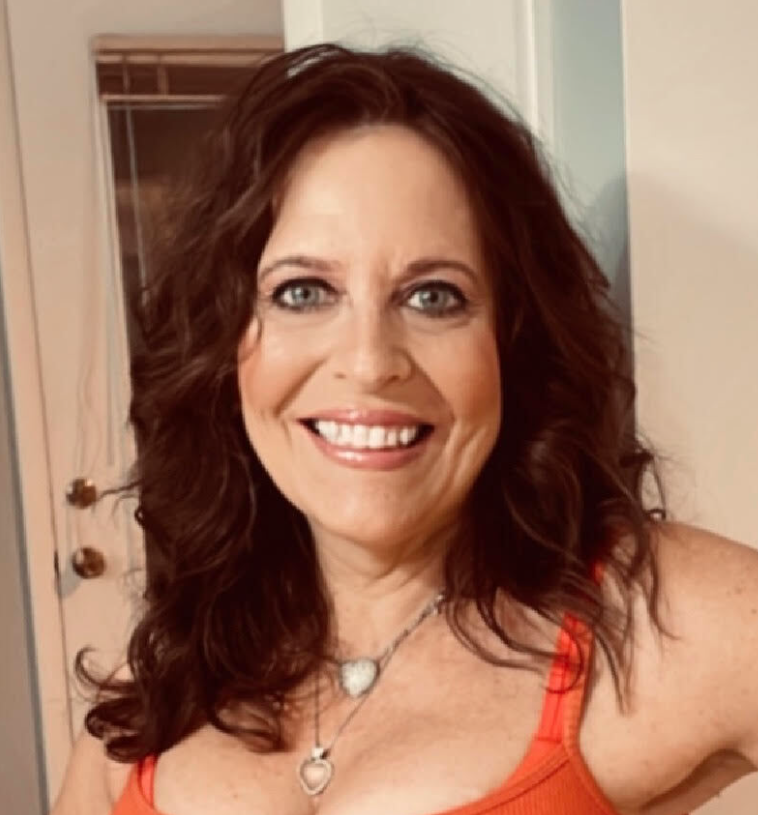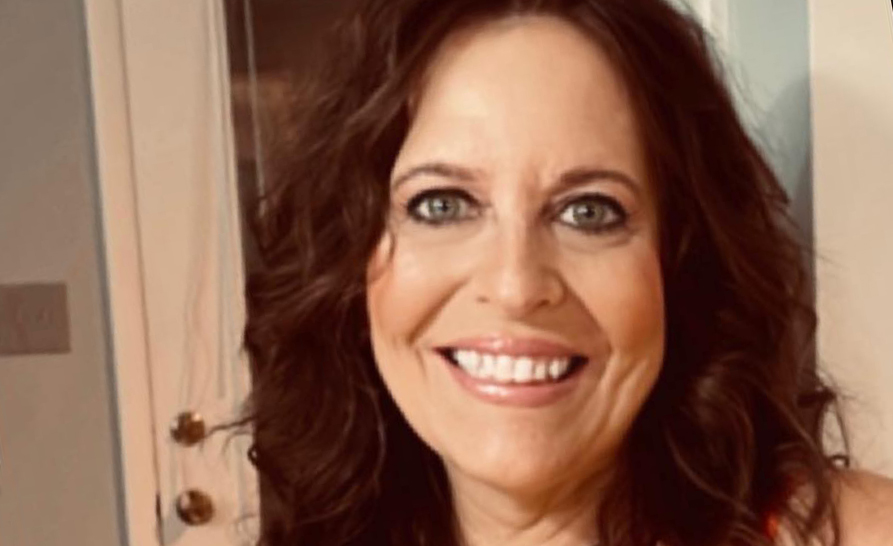By Wendy Lassen Feldman
September 2023

Looking back, the summer before my diagnosis I had some odd reverberating feelings in my lungs when I would laugh. I did see my doctor, but he thought it was reflux. Then, during a routine visit with a breast surgeon (because I am high risk for breast cancer) we found a lump. Turns out, that lump was not cancer, but because it scared me, I advocated for scans. While my doctor thought it was nothing, I insisted on a chest x-ray. I still can’t explain it to this day, but I knew something wasn’t right.
The day of my x-rays is also the day that my father died. I was in the car after my initial x-ray when my sister called to let me know that dad had died. Then, I got a call from the doctor’s office asking me to come back right away because I either had pneumonia or a tumor. I went back to Baltimore, had a CT scan, a PET scan a day after that, and was diagnosed with stage III lung cancer.
Not only treatable, but curable
I was diagnosed on September 8, 2016. The following night, I read my scan reports and looked up what I had and was freaked out. I called the thoracic oncology unit after seeing my scan results, and the head nurse called me back to discuss the results with me. She told me, “this is not only treatable, it can be curable.” And with that, I started my lung cancer journey with hope.
I completed biomarker testing, and my lung cancer was determined to be ROS1-positive – a type of non-small-cell lung cancer that occurs in only 1-2% of patients.
My life was dark. My father had passed away and I had just received a lung cancer diagnosis.
I needed purpose. That’s where my children come into the story. My kids were amazing, giving me the emotional strength that I needed. They truly showed up for me, as did my ex-husband, friends, family and community.
I met with a team of doctors at Johns Hopkins Bayview Medical Center and while receiving the treatment plan I asked a medical oncologist, “do you see me here in five years?” and without hesitation she said “yes” confidently. That saved me in that moment.
I started chemo and radiation on the same day. I was given cisplatin and pemetrexed, and simultaneously underwent aggressive radiation. I finished chemo-radiation on November 9, had surgery three weeks later on December 1, and an optional post-surgery radiation treatment on January 18, 2017 – then I was done. During my treatment I did not lose my hair, and I didn’t feel sick. I worked out, went on walks, and put on my makeup every day. It was important to me to still be me.
Don’t give up
My advice for someone with a lung cancer diagnosis sounds cliché, but it is true and important: don’t give up. When I went online after my diagnosis and saw my survival percentages, I could have given up. But lung cancer is not a death sentence. It is not all black and white. And if the survival rate is 20% – why can’t YOU be one of those 20%?
Remember, what you see online as a survival rate isn’t always reality – the data is often outdated, and it doesn’t take your personal circumstances into account.
Even at stage 4, lung cancer can be managed like a chronic illness with the advances doctors and scientists are making. Keep yourself alive. Don’t feel pressure to be “cured” – just keep yourself alive as long as possible so that you can benefit from the discoveries being made in the lung cancer space every single day.
I believe in manifestation. I didn’t hate my cancer. I didn’t fight it. Fighting something only keeps it alive to fight back. Instead, I grew to understand that my cancer was a part of me. It was just a part of me that I didn’t have room for in my life. As I laid on the radiation table, I would imagine the radiation killing the tumors and tell them, “it’s time for you to go now.”
My dollars go to research
LCRF’s mission resonated with me from the start. “Research” is in the name, and it’s what they do. Developments are occurring constantly, providing options for patients with lung cancer, and I want to be a part of that. I also appreciate that LCRF is a small organization, in that it is accessible and personal, and the staff make an effort to get to know their supporters. I thought at the beginning that LCRF was a huge organization with the amount of impact they have. But because LCRF is actually a small, accessible organization, I am able to truly know where my dollars are going and get to know the organization in a more personal way.
I plan to stay involved with LCRF, as a donor, a fundraiser, an attendee at events, and as a resource. I am happy to talk with anyone facing a lung cancer diagnosis. It is important to hear that there is hope. People are surviving.
